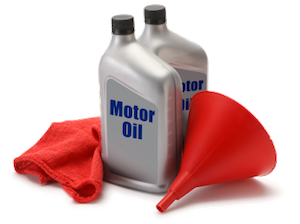home | e-mail | terms of use
oilspecifications.org
What Are The Reasons of Oil Consumption?
One of the dreaded things car owner face is oil consumption. For some people the only time when they have to do anything motor oil related is the time when they find out that its level is too low so it needs to be topped up. That’s assuming that the regular oil change is done by the repair shop and not the owner. It’s easy to think that the oil consumption is the oil’s fault especially if you didn’t notice it until the last oil change. The truth however is not so simple.
Oil consumption has many reasons. Let’s go through the most common ones quickly:
- Engine design. Some engines consume oil by design. From day 1. The consumption can be as high as 1 liter per 1000 kms (cca. 1.7 quarts per mile). This depends on the make and model of the engine so if oil consumption matters to you a lot then you are better off asking questions on the forums about it.
- Driving style. RPM affects oil consumption. The higher your usual RPM is the more oil will be consumed. That’s because you put extra pressure on the seals and gaskets and some of the oil finds its way around and gets burned away in the combustion chamber.
- Seal and gasket condition. The more worn they are the more oil will be consumed. What happens is the same thing that I mentioned in the previous section: the oil finds its way around the seals and it gets burned away in the combustion chamber or it simply leaks out.
- Higher-than-normal engine temperature. The hotter your engine runs the thinner your oil will be. Once again it will be simpler for a thin oil to reach the combustion chamber and get mixed and burned with the fuel.
- Too-low viscosity motor oil. If you use an oil with a viscosity below the recommended by the engine manufacturer than you will experience oil consumption for the same reason as presented in the previous section. By viscosity I do not mean SAE viscosity only. The HTHS viscosity also counts. For example you could experience higher oil consumption with a lower HTHS viscosity ACEA A1/B1 oil than with a higher HTHS viscosity ACEA A3/B3 oil.
- Low quality motor oil with high volatility. I mention this as the last one because this is the least common reason. If the oil’s volatility is very high than it could be noticeable in the oil consumption rate.
- There are also numerous other reasons including but not limited to high oil level, the damage or clogging of different engine parts and the fuel contamination of the oil.
Ok, so these were the reasons, let’s see what you can and can’t do about it:
- This is the most important: do not automatically try a higher viscosity oil to combat oil consumption. First consider the following:
- Higher viscosity means worse cold temperature performance, slower oil circulation, higher oil pressure, less heat transfer and – sometimes, if the oil passages are thin – worse lubrication even on operating temperature.
- This does not mean that the lower the motor oil’s viscosity is the better the oil. It just means that you should always stay within the range specified by the manufacturer and never use a thicker oil than allowed only to decrease oil consumption. Think about it: you could put grease in the engine instead of oil and there would be no oil consumption but your engine would fail in seconds or minutes. So no oil consumption does not mean better engine lubrication nor longer engine life.
- You could have your engine checked for worn seals and gaskets especially if it’s a high mileage engine. If you had no oil consumption problems when your engine was new and now you have since it’s old then this is the most probable cure for your engine.
- You could use an engine oil stop leak additive to reduce oil consumption but this should only be a temporary solution because it doesn’t treat the underlying cause of the consumption it just hides it.
- You could change the oil to a fully synthetic type if you are not using such oil already. Synthetic oils have a lower volatility so this can also have an impact on the oil consumption.
- Change your driving-style to stay between 2-2.5k RPM most of the time. You will save oil and fuel at the same time.
- If you can’t find the reason or the reason is none of the above then take it to a mechanic instead of getting creative and trying unorthodox measures, because doing so can cause more harm than good.


